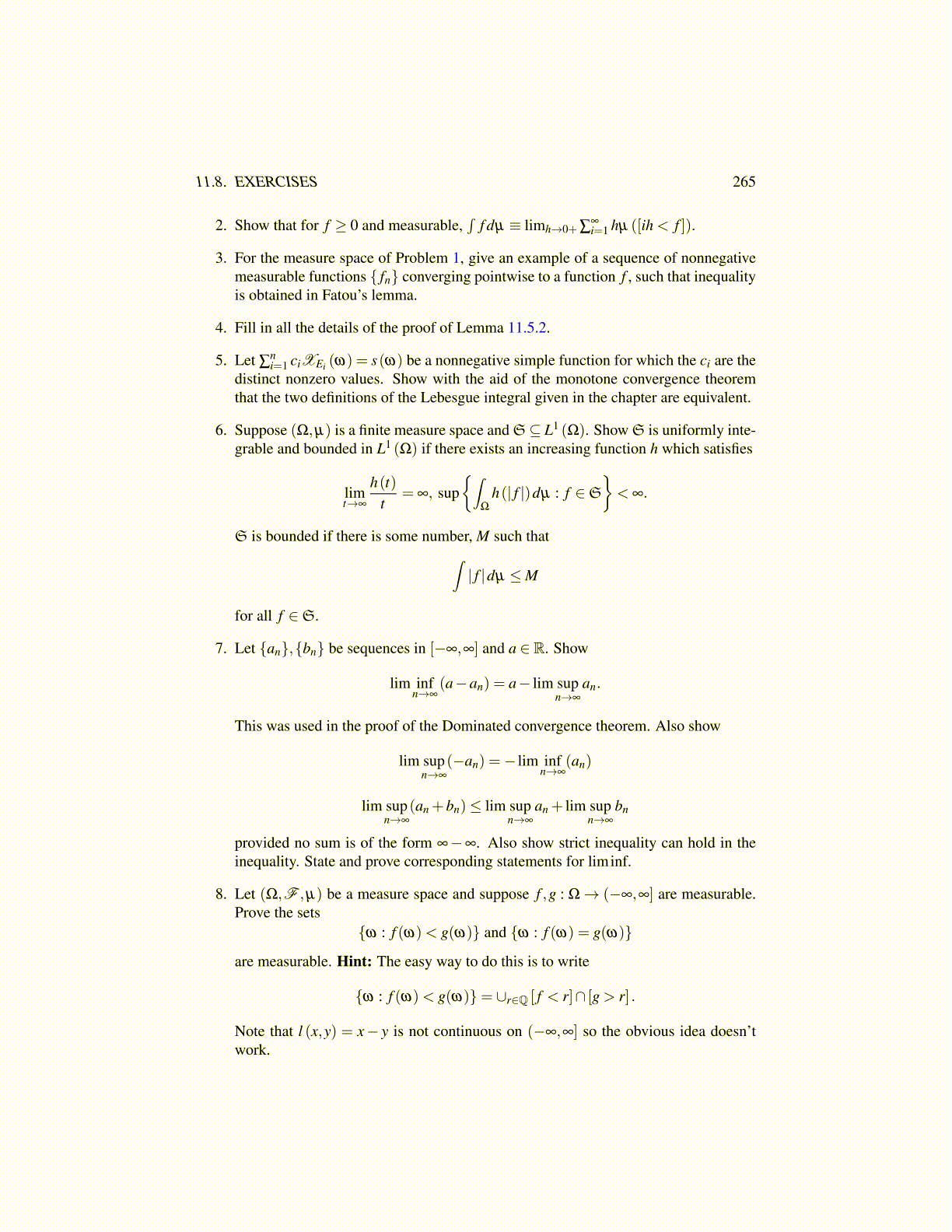
11.8. EXERCISES 265
2. Show that for f ≥ 0 and measurable,∫
f dµ ≡ limh→0+ ∑∞i=1 hµ ([ih < f ]).
3. For the measure space of Problem 1, give an example of a sequence of nonnegativemeasurable functions { fn} converging pointwise to a function f , such that inequalityis obtained in Fatou’s lemma.
4. Fill in all the details of the proof of Lemma 11.5.2.
5. Let ∑ni=1 ciXEi (ω) = s(ω) be a nonnegative simple function for which the ci are the
distinct nonzero values. Show with the aid of the monotone convergence theoremthat the two definitions of the Lebesgue integral given in the chapter are equivalent.
6. Suppose (Ω,µ) is a finite measure space and S⊆ L1 (Ω). Show S is uniformly inte-grable and bounded in L1 (Ω) if there exists an increasing function h which satisfies
limt→∞
h(t)t
= ∞, sup{∫
Ω
h(| f |)dµ : f ∈S
}< ∞.
S is bounded if there is some number, M such that∫| f |dµ ≤M
for all f ∈S.
7. Let {an},{bn} be sequences in [−∞,∞] and a ∈ R. Show
lim infn→∞
(a−an) = a− lim supn→∞
an.
This was used in the proof of the Dominated convergence theorem. Also show
lim supn→∞
(−an) =− lim infn→∞
(an)
lim supn→∞
(an +bn)≤ lim supn→∞
an + lim supn→∞
bn
provided no sum is of the form ∞−∞. Also show strict inequality can hold in theinequality. State and prove corresponding statements for liminf.
8. Let (Ω,F ,µ) be a measure space and suppose f ,g : Ω→ (−∞,∞] are measurable.Prove the sets
{ω : f (ω)< g(ω)} and {ω : f (ω) = g(ω)}
are measurable. Hint: The easy way to do this is to write
{ω : f (ω)< g(ω)}= ∪r∈Q [ f < r]∩ [g > r] .
Note that l (x,y) = x− y is not continuous on (−∞,∞] so the obvious idea doesn’twork.